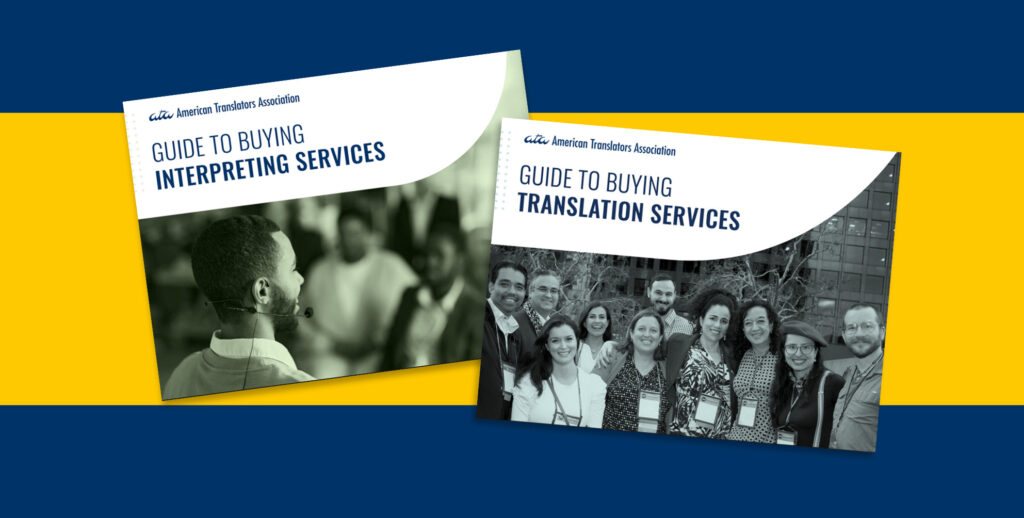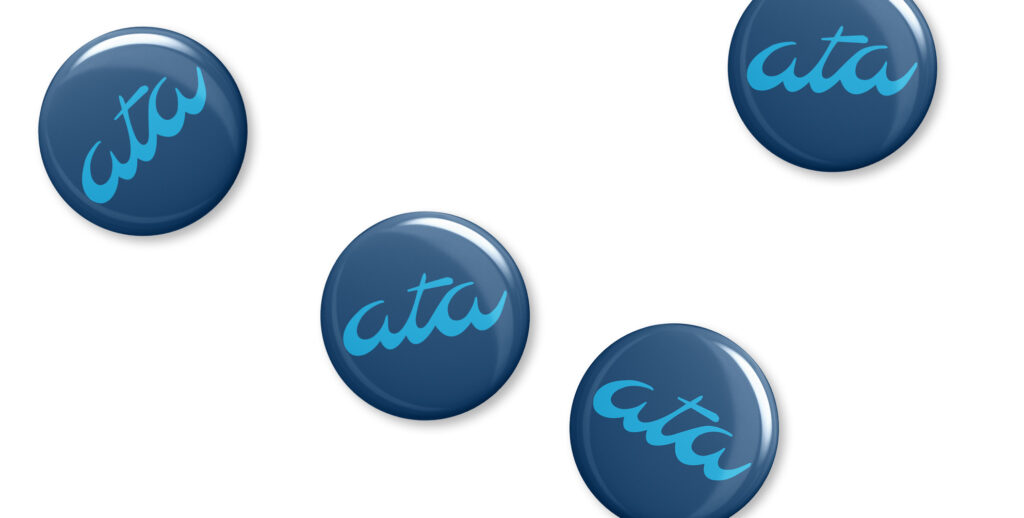Teaching Translation in the AI Era: Insights from a Professional Translator
Teaching translation in the AI era is deemed challenging, but it also opens exciting possibilities. Tools like ChatGPT and DeepL may disrupt traditional practices, yet they can serve as powerful catalysts for rethinking and revitalizing translation pedagogy. Rather than resisting these technologies, educators can harness them to promote innovative forms of learning and skill development. Here are several approaches and practical strategies that translation educators can implement in the AI-driven era.
The Chain of Responsibility: AI in the World of Interpreting
There are those who say that something is better than nothing. AI interpreting is better than no language access at all, they argue. But if that something has the same result as nothing, then there was no language access provided.
Elevate Your Client Outreach with ATA’s Guides to Buying Translation and Interpreting Services!
Translators and interpreters help power the global economy, working with businesses, governments, nonprofits, and individuals. ATA’s guides to buying translation and interpreting services are resources created to help clients identify, select, and work with language professionals. Members can share these guides with existing and potential clients and others to educate them about the T&I professions.
Advocacy Update: ATA Statement on Artificial Intelligence
As one of the world’s largest professional associations for language experts, ATA remains a key voice in shaping the future of language technology, advancing its advocacy efforts to champion the indispensable role of human linguists and actively participating in ongoing discussions.
Secure File Transfer for HIPAA Compliance and Peace of Mind
When you’re working with electronic patient health information, it pays to be overly careful. Learning how to encrypt files when you send and receive them will help you protect your clients’ health information and comply with the Health Insurance Portability and Accountability Act when applicable. You’ll also have the tools to protect your own information when you need to send personal files anywhere.
How Literal or Free Should a Translation Be? Concepts for Producing Natural and Appropriate Translations
Using examples from English>Japanese translations, this article discusses concepts for moving away from too much literalness and creating more natural and appropriate translations. Although the examples used are language-specific, the ideas discussed can be applied to any language.
The SMART Approach: How Interpreters Can Prepare for an Oral Certification Exam
Certification exams are as much about good interpreting skills as about strategies. If you’re an interpreter preparing for the oral certification exam, here’s how the “SMART” approach can help!
Vetting Potential Clients
Even the best of us have been tempted by a scam. Technology has given scammers an unprecedented level of sophistication and access, making it easier than ever to be fooled. Here are some tips for fellow translators, interpreters, and language professionals to help them vet potential clients and avoid being scammed or left with unpaid invoices.
ATA Elections 2025: Call for Nominations
Do you know someone who would make a good potential candidate for ATA’s Board of Directors? If so, ATA’s Nominating and Leadership Development Committee would like to hear from you. Any ATA member may make a nomination. Here’s your chance to help shape the future of the Association!
How Does ATA’s Nominating Process Work?
Why is ATA interested in leadership development for its Board and potential future candidates?
ATA Shares Resources for Those Affected by the Southern California Wildfires
Many ATA members, their families, friends, and communities have been impacted by the unprecedented catastrophe in Southern California.
Interpreting the Russian–Ukrainian War for Television: Hiding Emotions under the Social Carpet
The role of emotions in interpreting is a relatively new field capturing scholarly attention. In this article, an experienced media interpreter explores the role emotional labor plays when interpreting the Russian–Ukrainian war for the media, particularly the challenges faced by interpreters and the coping mechanisms they use.











